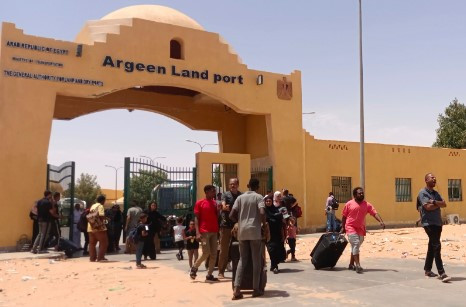×
The Standard e-Paper
Join Thousands Daily

Evacuees carry their luggage as they cross into Egypt through the Argeen land port after being evacuated from Sudan to escape the conflict, on the international border lines between Egypt and Sudan. [VOA]
The United Nations migration agency says at least 334,000 people have been internally displaced in Sudan since deadly fighting broke out last month between two military factions.